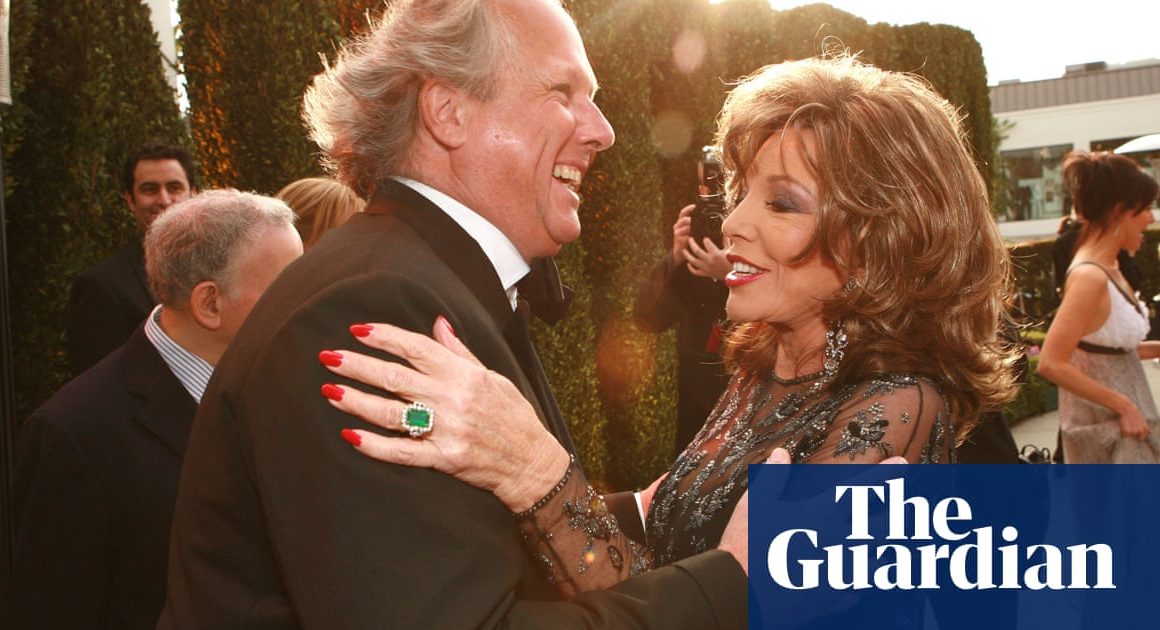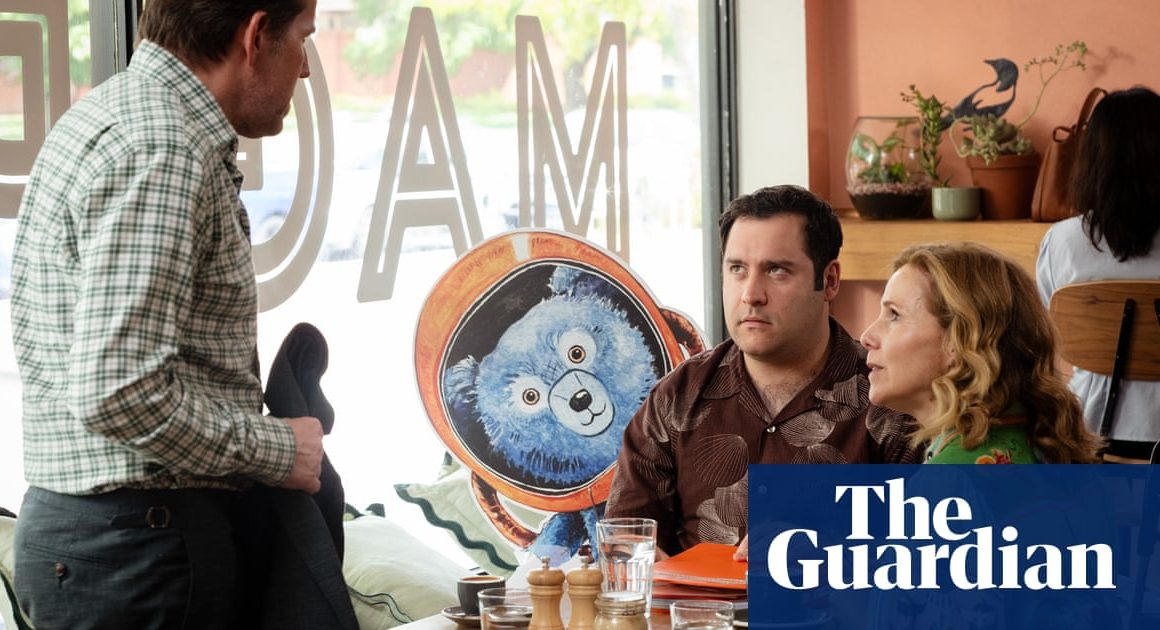When James Collier got married to Melanie nearly 10 years ago, his dad paid for the honeymoon. Collier’s businesses weren’t exactly booming, but he had a good feeling about a new venture. “I was on the beach checking my emails, and I said to Mel: ‘I think this is going to do all right, this one.’ And that was an underestimation.”
It certainly was. Sales of Huel, the meal-replacement brand Collier launched in 2015, topped £214m last year. Pre-tax profits tripled to £13.8m. Huel – a product mainly made of oats, pea protein and flaxseeds, which comes in powder, drink, snack bar and meal-pot forms – is sold in 25,000 shops worldwide, including 70% of UK supermarkets. The company was most recently valued at £440m, but has since had investment from Morgan Stanley. Just how rich is Collier now?
“I’m among the low multimillionaires now, but there’ll be more. You know the valuation we had in 23? Morgan Stanley aren’t going to settle for that.” You’re absolutely loaded then? “Yeah. But that’s the boring bit!”
Collier, 52, is clearly keen to get off the topic of money and on to food. He has just written a book, Well Fed: How Modern Diets Are Failing Us (And What We Can Do About It), and feels “almost a moral obligation” to get his message out. (“I realise how that sounds,” he says apologetically.) First, though, I’m fascinated to hear how his life has changed since Huel went stratospheric. The couple still live in the same house in Corby, Northamptonshire, but “we have more holidays; we have no mortgage”. Any flash cars? “I had a flash car even when I couldn’t afford one!” The biggest difference, he says, is his mindset. “The knowledge that things are going to be all right is proper life-changing.”
Collier grew up in Titchmarsh, a village a dozen miles from Corby. His parents, Marilynne and Brian, each ran their own business. “There was a lot of talk of business all the time,” he says. “I remember once having a strop, saying: ‘Can you guys just stop talking about work over dinner?’
“I had a good childhood, lots of friends, but I definitely had some mental health issues, looking back. I was a sensitive kid.” Collier went to a private school, Kimbolton, from the age of eight. “I was bullied quite a lot. It wasn’t as physical as it could have been – it was more putdowns all the time. It affected me quite a lot.” Not long after he started at the school, his mother was diagnosed with breast cancer. “It was the first time I’d heard the C-word,” he says.
After her diagnosis, his mother became a vegetarian. “There was a lot of food focus, a lot of talk about good nutrition and the importance of being physically active. So that sort of set the scene.” Then, when he was 16, an older friend introduced him to the gym. “He got me lifting weights. I am that cliche: the wimpy kid who got sand kicked in his face, found the gym and went back and kicked sand in their faces.” He quickly adds: “Metaphorically, obviously.”
He studied nutrition at the University of Surrey, “partly because of my mum’s influence. She saw me get to uni, and she died in May, just before the summer term ended.” How did he cope? “It was tough. I was very much a mummy’s boy growing up … You just cope, don’t you.”
After university, Collier worked as an NHS dietitian and got into bodybuilding. As a tough-looking, muscular guy, he was recruited as a bouncer and started earning extra money policing pubs and clubs. “That wasn’t good for my mental health,” he says. “On a Thursday night I could be working on the door, chucking people out at half 11. You don’t sleep straight away after that. Then at 9am on Friday I’d be on the wards with little old ladies, helping them to eat and take their sip feeds. Quite an aggressive night out and being on the wards the next day – they’re the opposite. I don’t think it did me any good at all.” He struggled with depression. “I would be getting on with stuff, but I’d have this brick in my tummy, and I was unhappy. I had broken relationships with girlfriends.”
He quit the door work, went part-time in the NHS and moved into nutrition consultancy. He also set up a bodybuilding website, MuscleTalk, with a friend. “That was quite successful for a while. It wasn’t Huel levels of success, but it gave the two of us an OK monthly income.” Eventually, his side hustles became his full-time job.
But his mental health was still troubling him. “I had real anger issues in my early 30s. I used to punch a lot of things: doors and stuff like that – never individuals. I did anger management and I went on antidepressants.” Did it help? “I think so … We all have our demons.”
In 2014, he got an email from an entrepreneur, Julian Hearn, who’d had the idea for Huel. He asked Collier to come up with a recipe, which he did, and they launched Huel a year later. But in 2016, just as Huel was taking off, Collier became seriously ill. “I had an infection on my spine. It was life-threatening. For hours, it was critical. I was immobile for a few weeks and had limited mobility for five months.”
Physically, he recovered well, but mentally he was at rock bottom. He was coming off the opioid painkillers he’d been prescribed for his infection and playing catchup at work. “In my other businesses, I’d been the ultimate decision-maker. Julian’s quite a strong-willed individual, and I struggled with it. But do you know what made me more depressed? The fact that I’d had a moment where I was critically ill, and I thought: I’m in so much agony here, if I get through this, I’m never going to go down again. I’m going to appreciate my life. And then I didn’t. I didn’t.”
He started to get well, he says, after going on a “critical thinking journey”. He read Sapiens by Yuval Noah Harari and Waking Up by Sam Harris. He discovered meditation – previously an alien concept. “Because I’m such a science nerd, I’d always pooh-poohed meditation as new-age mumbo-jumbo. Oh, how wrong I was!” He began practising gratitude. “I’ve got very good at pausing numerous times throughout the day, and just noticing and appreciating,” he says.
He adopted four values to try to live his life by: honesty, rigour, compassion and humility. Now, he says, “I can honestly make this claim: I don’t think depression will ever adversely affect my life to any significant degree again. Of course I’ll have down days, and I can’t say for certain, but I don’t think it will ever get me like it used to.”
His new outlook made him think more critically about Huel. “When we started, we were making sustainability claims because we knew plant-based was better, and I thought: we need to back this up,” he says. While Huel products have always been vegan, “prior to then, I thought climate change was probably something we should be concerned about, but that was literally the limit of my knowledge.”
His research led him to reconsider the food system as a whole, and eventually resulted in Well Fed. The book outlines his dietary philosophy, which he calls contemplative nutrition. It has five pillars: physical health, mental wellbeing, sustainability, ethics and togetherness.
Huel – “human fuel” – is instant food. How can its co-founder advocate contemplative eating? Surely that is contradictory to the convenience that Huel promotes to its customers (who are known as Hueligans)? “People can have a 100% Huel diet, but I would never encourage that – in fact, I would discourage it. But it can be one meal a day, or a couple of meals a week, or just have it in your cupboard for whenever times are hard,” he says. “People are grabbing food on the go, making unhealthy food choices. Huel is the best plan B.”
What about Collier’s fifth pillar: eating together – doesn’t Huel go against that? “Well, no. I really encourage people to prepare food together and eat with other people, but people can’t always do that. They certainly can’t do that in this modern world, three meals a day. It would be lovely, wouldn’t it? But the world would stop. If you can eat with other people most days, I think that’s a good win.”
How often does he have Huel? “Most days I have it at least once. When I’m in HQ, I only have Huel. I don’t take a pack-up – why would I?”
When I first heard about Huel, I assumed it was a kind of trendy SlimFast. Is it a diet product? “It’s neither for weight gain nor weight loss,” says Collier. “Huel has been designed as a 2,000 calorie a day intake. It’s also been designed to promote satiety.” I tell him about a friend who credits Huel for getting rid of his beer belly. “Huel can’t take the credit for that, other than it’s made his life easier. There’s no magic solution in Huel. Anyone who changes their diet for the better is going to improve.”
In the book, Collier rails against the term “ultra-processed food”, preferring the phrase “junk food”. It is not difficult to see why: Huel falls into the former category but not the latter. Its products variously contain flavourings, stabilisers, sweeteners, emulsifiers and thickeners. “The term ultra-processed food should have stayed in academia. It has confused the public,” he says. “We need ultra-processing to combat the many environmental and nutritional risks we face. How are we going to get more fibre into people? Let’s use the right sort of ultra-processing.” He points to Weetabix, baked beans and high-fibre bread as the “right” sort – as well as Huel, of course.
Collier is also concerned by what he sees as a growing anti-science movement, personified by RFK Jr in the US. “We can’t dismiss science. It’s unrealistic to expect everybody to go back to diets that people were eating even just a few generations ago.” He supports GMOs, cellular agriculture and regenerative farming using modern methods. “And of course I’m going to talk about complete foods, the category that Huel falls under, because it’s one of many cogs in the future of the food system.” (He uses the term “complete food” rather than “meal replacement”.)
He is particularly scathing about food influencers in the book, yet Huel is happy to use them. Isn’t that hypocritical? “Influencers can be used, just in the right way. There are some brilliant ones out there. If I’m not happy with them, I’ll veto them.” Some influencers peddle misleading messages and have a messiah complex, he believes. “Let’s use Eddie Abbew as the prime example. He’s extreme, he’s evangelical, he promises the world. He literally says to camera: ‘I can heal you, I can save you.’”
One of Collier’s more eye-catching ideas is that animal products should make up just 10% of calories in the average diet. Is that realistic? “It’s absolutely realistic. Considering the western average is 28-30%, we can reduce that by two-thirds. What that looks like is having a couple of days a week without any animal-derived calories, and reducing what we have on other days. Also, really, really try to avoid intensively farmed red meat and poultry.”
He considers veganism in the book and writes powerfully about animal rights. So why is he not a vegan himself? “There are three terms: vegan, plant-based and plant-rich. I think plant-rich is the right message at the moment,” he says. “I’m in this weird position where I’ll get hate from both sides, vegans and carnivores. The carnivores will definitely have a go at me more. The carnivore hate is a lot stronger.”
Much of the book focuses on individual choices. “People are so emotionally attached to what they eat. Nutrition is possibly more polarising than politics,” he says. “I don’t want to be that guy who tells people what they should be doing, but I’m urging people to contemplate what they eat a bit more. Can we be a little bit less ‘me’-focused and a bit more ‘we’-focused?”
Speaking of politics, where does he stand? “I used to be a member of the Conservative party. I’m not any more. I’m not saying there weren’t things I agreed with, but there were things I agreed with in the Liberals, the Greens and a lot in the Labour government. I don’t like tribal behaviour, and it implies that you can’t change your mind.” He changed his mind about the UK’s sugar tax, for example. “I was against it when it came out. I really was wrong. I was naive; I believed in freedom of choice.” He now thinks that many changes in the food system need to come from the top down.
That leads us neatly to Huel’s run-ins with the Advertising Standards Authority. Last year, three ads in two months were banned by the ASA, one for making misleading claims and two for failing to disclose that the entrepreneur Steven Bartlett had a financial interest in the brand when he promoted Huel. Collier describes the episodes as “disappointing”, “not cool” and a “faux pas”, saying: “We have a working group to make sure this sort of thing doesn’t happen again.” However, he also feels that Huel is being unfairly singled out. “I think it’s partly that the ASA is using Huel as a test case. We know that other companies are getting away with disingenuous and unlawful claims, but they’re not being picked up on it.”
We’ve been talking for two hours and Collier has to catch the train back to Corby, but he has an errand to run first: “I’ve yet to have lunch today and I haven’t brought anything with me, so I’ll grab a Huel from the shop.” He laughs at the idea of paying for his own product – but money is not exactly a worry these days.












